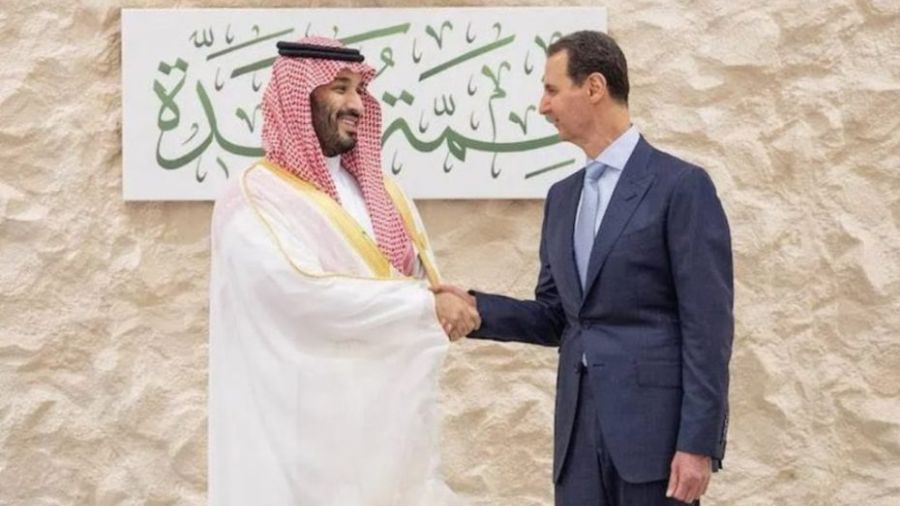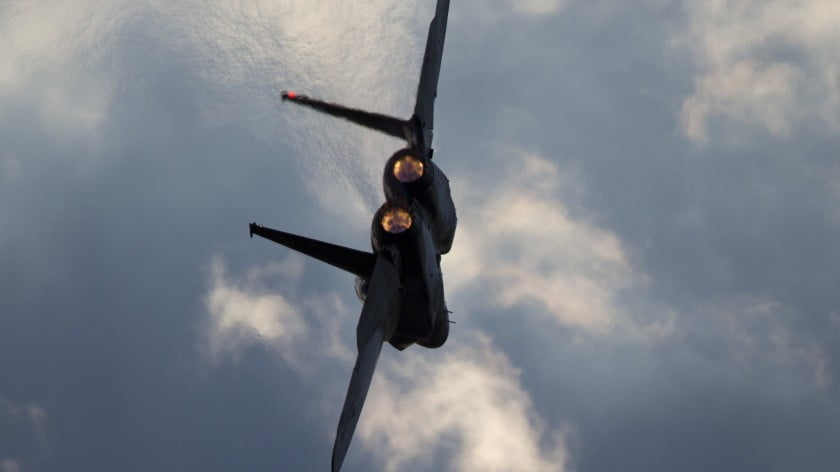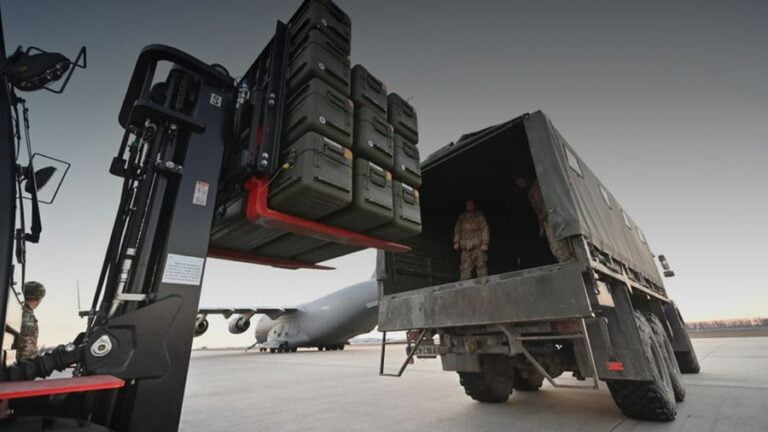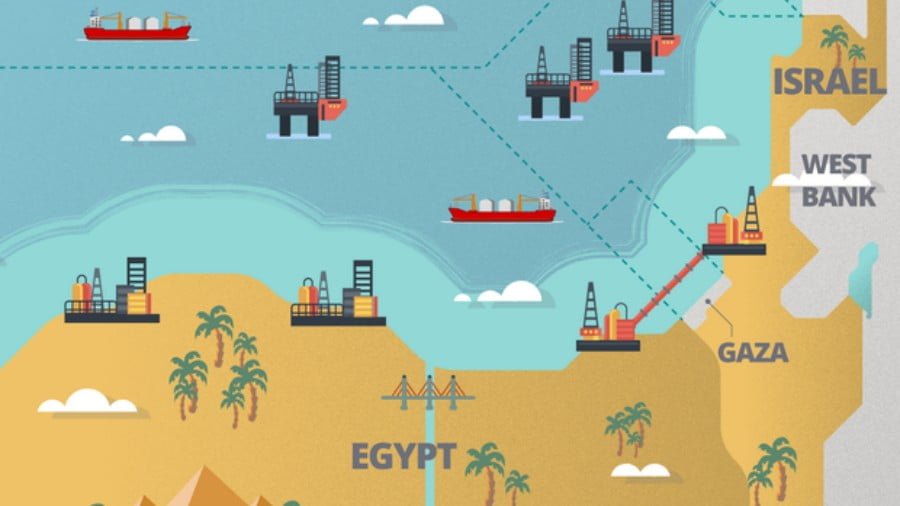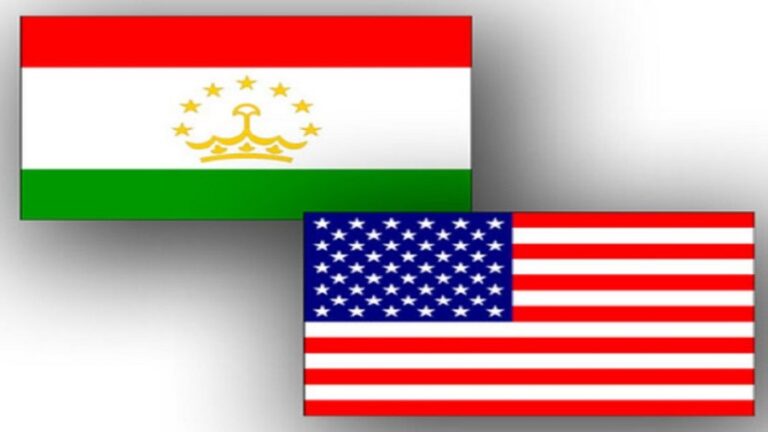Saudi Crown Prince Is Working Towards a Political Solution for Syria
Meanwhile, the U.S. and its allies, who created the war and supported terrorists, refuse to participate in the recovery process for the Syrian people.
Dr. Faisal Mekdad, Syria’s Foreign Minister, is in Saudi Arabia for meetings held on June 11 and 12, which marks his third visit to the Kingdom in the last three months. In April, he made his initial visit and accompanied President Assad to Jeddah to attend the Council of the League of Arab States summit on May 19.
Saudi Crown Prince Mohammed bin Salman, known as MbS, promoted the aid and recovery of Syria through his position as host of the Arab League Summit in May. MbS asked for an Arab decision to bring Syria back to the brotherly league of Arab nations, while the U.S. voiced condemnation of the plan.
“This is a strong signal to America that ‘we’re reshaping and redrawing our relations without you’,” said Abdulaziz Al-Sager, Chairman of the Gulf Research Centre.
MbS took on his leadership role at the helm of the biggest oil exporter in the world while putting the interests of his nation first, and not bowing to pressure from the U.S. Biden administration, who have used undiplomatic language to describe MbS and voiced open threats directed against Saudi Arabia.
The U.S. demanded that Saudi Arabia participate in the Obama-Biden war on Syria for regime change beginning in 2011. The American plan utilized terrorists who raped, maimed, and murdered across Syria while being financed by Qatar and Saudi Arabia. The project failed, and the Syrian people fought back against the Muslim Brotherhood and Radical Islam to remain the only secular country in the Middle East.
In April, Mekdad and Prince Farhan, the Foreign Minister of Saudi Arabia, discussed a comprehensive political settlement to the Syrian crisis and restoring Syria’s role in the Arab world.
Syria announced that Saudi Arabia has agreed to resume direct flights between Syria and Saudi airports and they are expected to begin at the end of June. A Saudi technical team arrived on May 28 in Syria to prepare for the reopening of the Saudi Arabian embassy in Damascus.
U.S. Saudi relations
When U.S. President Biden visited MbS last July, he came to demand an increase in oil production to lower the gas prices in the U.S., but he left empty-handed. On June 8, U.S. Secretary of State Blinken sat with MbS and during the visit MbS announced he will cut oil production in July, raising the price of gasoline to U.S. consumers.
Blinken has voiced the U.S. condemnation of allowing Syria to return to the Arab League, and the U.S. is actively planning revenge on the Kingdom and any other Arab countries who dare to participate in rebuilding the homes, infrastructure, and livelihood of the Syrian people.
Instead of looking for a peaceful solution for the U.S.-engineered conflict in Syria, Blinken is focused solely on coercing Saudi Arabia into normalization with Israel through the Abraham Accords, which according to Blinken is an American “priority”.
Foreign Minister Prince Faisal bin Farhan seemed unmoved by Blinken’s urging, and said that normalization with Israel would have “limited benefits” without “finding a pathway to peace for the Palestinian people.”
MbS has repeatedly called for the creation of a Palestinian state in the West Bank, east Jerusalem, and Gaza, which would meet existing UN resolutions. However, such a move is impossible in Israel under the current Jewish extremist regime of Benjamin Netanyahu.
MbS is in the midst of his Vision 2023 which calls for peace and prosperity for the Middle East. Blinken has no vision for the Middle East, and his priority is to maintain the status quo in Palestine by keeping 6 million people under a brutal military dictatorship. Blinken is oblivious to the suffering of the Syrian people and their neighbors the Palestinians.
During Blinken’s visit to Riyadh, he co-hosted a meeting of foreign ministers from the global coalition fighting the Islamic State (IS) and pledged nearly $150 million for efforts in Syria and Iraq. The coalition includes more than 80 countries and new funding for the program amounts to more than $600 million. The money will flow through the U.S. partner in Syria, the Kurdish communist administration in the northeast.
Mohammed bin Salman paves a new road
MbS isn’t to blame for the destruction in Syria, which was before his time. His vision 2030 is a plan for regional peace and prosperity, including Syria. He has emerged as a global player untethered from Washington. He has started massive economic and social reforms which span from tourism, sports, entertainment, education, commerce, and investments.
Repairing relations with neighbors in Yemen, Qatar, Iran, and Syria are cornerstones in his diplomatic efforts. Regardless of criticism from Washington, MbS insists on working toward a political solution in Syria that will be Arab-driven and seeks to use UN resolution 2254 as a roadmap.
MbS held a phone call with Russian President Putin on Wednesday, and Venezuelan President Maduro visited MbS before Blinken arrived. The Crown Prince seeks cooperation and diplomacy with varied leaders and is not bound by Oval Office dictates, while pursuing Saudi Arabia’s national interests.
U.S. sanctions, sanctions, and more sanctions
The U.S. Congress is considering yet another round of sanctions on Syria, which prevent the Syrian people from rebuilding homes, schools, hospitals, and infrastructure that was destroyed or damaged by the U.S.-sponsored terrorists.
The new bill is called the Syrian Anti-Normalization Act of 2023 and would be an addition to the already paralyzing Caesar Act of 2020. The new bill seeks to impose heavy fines on any country that would dare to help the Syrian people rebuild and recover. Arab countries normalizing their relations with Syria would be prevented from helping in the rebuilding.
Experts point to the fact that sanctions only hurt the Syrian people and impede their recovery and prevent jobs and livelihoods from recovering. The law provides for financial penalties to be imposed any time a country made an investment, grant, contract, or donation worth more than $50,000 to parts of Syria held by Damascus, which hold the largest territory and includes all of the major cities of Damascus, Aleppo, Homs, Hama, and Latakia. The U.S. protects terrorists in Idlib, and the communist-administrated region in the northeast, but none of those areas have a large city. The largest group of Syrian civilians live under the administration of the central government seated in Damascus.
Syria analyst Joshua Landis of the University of Oklahoma believes sanctions on Damascus will not bring justice to the Syrian people, but further impoverish them. Due to U.S. sanctions, medical equipment sits idle in hospitals because sanctions prevent ordering replacement parts. Occasionally, chemotherapy drugs are unavailable in Syria because foreign manufacturers are afraid to face penalties for sending products to Damascus. Building houses in Syria starts with wooden frame, and Syria does not have hardwood forests, so wood must be imported. However, countries such as Canada, Sweden, and Norway will not sell wood to Syrian merchants for fear of penalties.
EU summit
‘Supporting the future of Syria and the region’ will be held in Brussels on June 14 and 15. The meeting does not address or consider the needs of 15 million Syrians living under the central government, but exclusively focuses resources on the civilians held hostage by terrorists in Idlib, and the needs of foreign countries who are hosting Syrian refugees, such as Turkey, Jordan, and Lebanon.
This meeting is the main pledging event of 2023 for donations for Syrians who do not live under the Damascus administration. However, the vast majority of Syrians will never be helped or see any improvement in their lives by this meeting. This demonstrates the priorities of the Western democracies: to support the terrorist leaders who hold 3 million in Idlib, and to make sure that Syrian refugees living in tents in Turkey, Jordan, and Lebanon are kept from starvation, but held as pawns which will prevent their return home to Syria.
The U.S. and its allies in the European Union are not considering the lives of 15 million people living in Syria. They created the war, supported the terrorists who destroyed the country and divided it, but they refuse to participate in the recovery process for the Syrian people.

